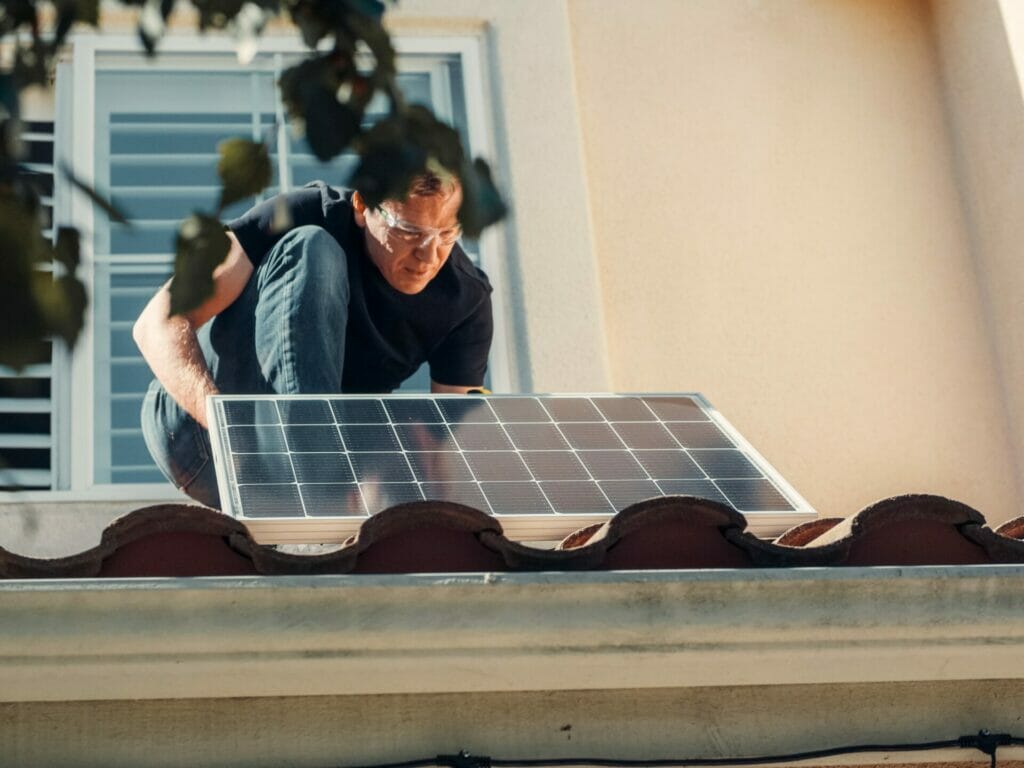Last Updated on August 30, 2023 by Mosabbir
Solar panels are a great way to save money on energy costs, but they can also be an attractant for pigeons. Pigeons are attracted to the shiny surfaces of solar panels and can cause significant damage by pecking at the panels or leaving droppings behind.
In addition, their nesting material can block ventilation slots and cause the panels to overheat. As a result, it is important to take measures to prevent pigeons from roosting on or near solar panels. But how much does it cost to pigeon-proof solar panels? Keep reading to find out.
How Much Does It Cost To Pigeon Proofing Solar Panels?
The cost of pigeon-proofing solar panels will vary depending on the size and type of solar panel array, as well as the level of protection desired.
But the average price can range from between £600 to £900. But different methods used to keep pigeons away from solar panels can have separate price tags.
Learn More: Solar Panels vs Solar Blankets- Which is Better For Camping?
Why Do Pigeons Make Nests Under Solar Panels?
One might not think that pigeons and solar panels have much in common, but it turns out that they often make perfect nesting partners. Solar panels provide a safe, dry, and relatively warm place for pigeons to lay their eggs, and the birds are attracted to the open space beneath the panels.
Additionally, solar panels tend to be located in areas with little human activity, which provides an added measure of safety for the pigeons. While solar panels may not be the ideal nesting spot for every bird, they offer a uniquely attractive environment for pigeons. As a result, it’s not surprising that these birds are often found nesting beneath solar panels.

Why Pigeons Nesting Can Cause Problems?
Pigeons are commonly known as “rats with wings,” and for good reason. These pests carry several diseases that can be harmful to humans, and their droppings can damage property and contaminate food. In addition, pigeons are also attracted to solar panels, which can lead to several problems.
For one thing, pigeons tend to roost on solar panels, leaving behind their droppings. This guano can cause physical damage to the panels, as well as make them less efficient.
In addition, when pigeons nest on or near solar panels, they can attract other pests, such as mites and fleas. Finally, pigeons are also noisy animals, and their cooing can be a nuisance for homeowners.
Overall, pigeons can be a real problem for solar panel owners. Not only can they damage the panels themselves, but they can also attract other pests and make a lot of noise. If you have a pigeon problem, it’s best to call in a professional to help get rid of them.
How To Pigeon Proof Solar Panels

Pigeons, also known as rock doves, are a common sight in cities worldwide. While these birds may be harmless, they can cause significant damage to solar panels.
Their droppings are acidic and can eat through the protective coating on solar panels, while their nesting habits can block sunlight from reaching the panel’s surface.
As a result, pigeons can significantly reduce the efficiency of your solar panel array.
Learn More: How Does Microwave Defrost Work?
1. Install Solar Panel Mesh
One of the best ways to keep pigeons away from your solar panels is to install a physical barrier between them.
Solar panel mesh is a type of netting that can be placed over your solar array. This will prevent pigeons from being able to land on or access your panels.
2. Clean Up
Pigeons are attracted to areas that are cluttered and dirty. If your property is full of debris, chances are there are already pigeons nesting nearby.
To discourage them from setting up shop on your solar panels, it’s essential to keep your property clean and free of debris.
Cut back any overgrown vegetation, pick up any loose trash, and sweep up any bird droppings that you find.
3. Install Spikes
Another way to keep pigeons away from your solar panels is to install spikes on top of them. This will create an uneven surface that pigeons will not be able to land on comfortably.
You can find pre-made solar panel spikes at most hardware stores, or you can make your own using chicken wire or PVC pipe. Simply bend the wire or pipe into spikes and attach them to the top of your panels using zip ties or duct tape.
How To Relocate The Nest
You may be wondering how to relocate the nest and the answer is quite simple. There are a few key steps you need to follow to make sure that your move goes as smoothly as possible. Keep reading to find out more!
1. Find A New Home
The first step is to find a new home for your family. This can be done by looking online, in newspapers, or even driving around your neighborhood.
Once you have found a new place, you need to contact the landlord or owner to see if it is available for rent.
2. Pack Up Your belongings
The next step is to pack up all of your belongings and prepare for the move. This includes getting rid of any unwanted items, packing up boxes, and labeling them accordingly.
You should also make sure to set aside any important documents such as birth certificates or passports.
3. Hire A Moving Company
The third step is to hire a moving company to help with the relocation process. This is important as it will take a lot of stress off of you and your family.
Make sure to do your research and choose a reputable company that is insured and licensed.
4. Move In And Unpack
The final step is to move into your new home and begin unpacking your belongings. This process can be daunting but it is important to take your time and do it right.
Once everything is unpacked, you can begin decorating your new home and making it your own!
Learn More: What Electrics Do I Need For My Campervan?
Conclusion
Pigeons can cause significant damage to solar panels and reduce the efficiency of your solar array. To protect your investment, it’s important to take measures to prevent them from accessing your panels.
This can be done by installing solar panel mesh, keeping your property clean, and installing spikes on top of your panels. If you already have a pigeon problem, the best course of action is to call in a professional to help get rid of them.
